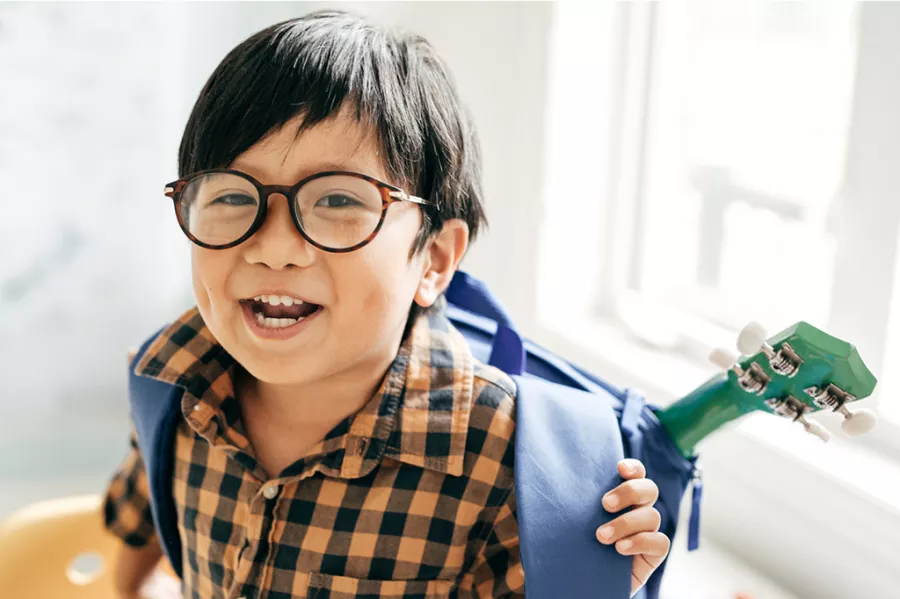
It’s almost time for kids to head back to the classroom. School supplies? You’ve got them! Vaccines? Up-to-date! Vision screening? No? Don’t panic—ophthalmologist Dr. Sylvia Yoo of Tufts Medical Center Ophthalmology & New England Eye Center is here to answer your questions about your child’s eye health and how to recognize myopia—a common eye problem in children and teens.
When should my child have their vision screened?
Pediatricians play an important role in screening for vision problems, including identifying myopia. Your child’s pediatrician may begin vision screenings at 6 to 12 months using a photoscreening device—a special camera that takes pictures of your child’s eyes. This device looks for things that may cause abnormal vision development such as eye misalignment or a high glasses prescription. If the screening shows a potential problem, you may be referred to an ophthalmologist for more thorough testing and treatment. As your child gets older, vision screening tests are done using an eye chart with shapes or letters.
What is myopia?
Put simply, myopia, or nearsightedness, is a condition that makes distant objects blurry and close objects clear. Myopia usually occurs when the eyeball is too long from front to back. It can also develop when the cornea, the clear window at the front of the eye, is curved too steeply. When light enters the eye, the rays are focused just short of the retina, the light-sensitive tissue at the back of the eye. While genetics play a role in which children will experience myopia, research suggests that prolonged up-close vision activities such as using smartphones and tablets is causing more children to develop higher amounts of myopia.
What are the symptoms of myopia?
Most people start to see symptoms of myopia between the ages of 6 and 14, though myopia can occur earlier or develop later. These symptoms include blurry vision, squinting to try to see better, experiencing frequent headaches, or rubbing the eyes. If you notice these symptoms, it’s time to make an appointment for an eye exam.
How is myopia treated?
Myopia can’t be reversed or cured, but it can be treated. Glasses or contacts with the correct prescription will help improve your child’s vision.
Glasses are a great treatment option and can be used all the time or just when they're needed so your child can see far away. An optician can help you choose frames that fit well and that work for your child's age and activities. You may want to get a backup pair in case the regular pair gets broken or lost. If your child plays sports, prescription sports goggles are more protective and less likely to be broken.
Depending on your child’s age and maturity, contact lenses are another option. Your child should be able to tolerate eye drops well and practice good hygiene. Contacts need to be cared for on a daily basis, and you should look out for redness or eye pain that might indicate an infection.
Will my child’s myopia get worse? Is there any way to slow the progression?
Yes, the majority of children with myopia will see their condition progress as they age—though most people will see their symptoms stabilize by their 20’s.
Some potential treatments that have shown promise to slow myopia progression include:
- Low-dose atropine eye drops—a low concentration version of drops that are similar to the ones dilate the pupils during an eye exam—have been shown to possibly slow down myopia progression in children.
- Spending time outdoors every day can also help with myopia management
- Some children may benefit from wearing specialized multifocal contact lenses which also have been shown to slow eye growth and limit myopia
Remember, if your child is experiencing problems with their vision, call your pediatrician right away.
Learn more about our ophthalmology services and make an appointment